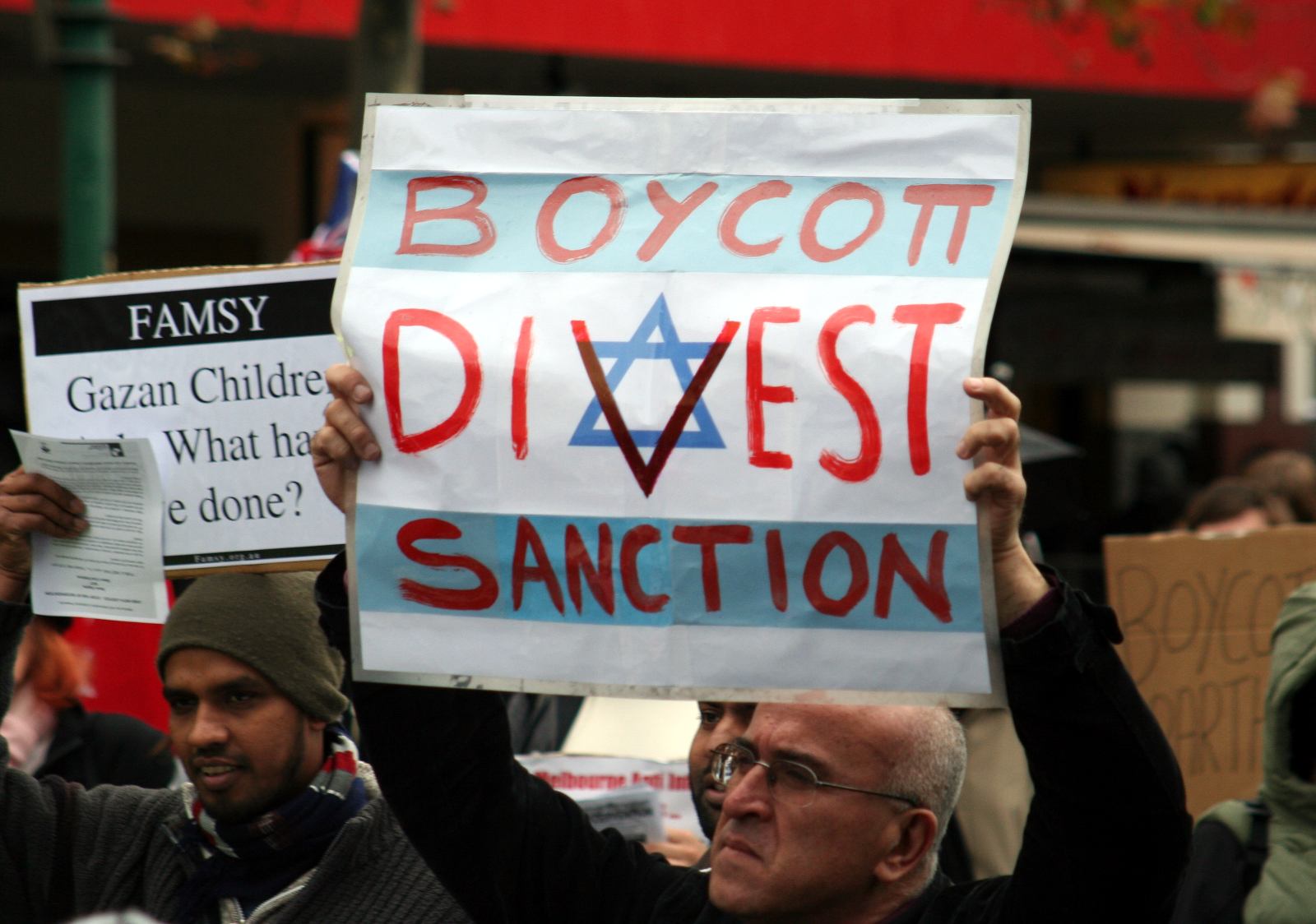Like this article? rabble is reader-supported journalism. Chip in to keep stories like these coming.
Liberals and Conservatives joined hands earlier this week to send a clear message to Canadians: critical views of Israel are not to be tolerated in this free and democratic country. The case at hand was the Boycott, Divestment and Sanctions (BDS) movement, which appears to be gaining some traction around the world. It’s unsurprising, then, that a powerful backlash is occurring.
It is now illegal in France even to peacefully pass out flyers urging shoppers to boycott Israeli goods. The U.K. is poised to punish any public institution that joins the boycott. In the U.S., whose First Amendment makes this more difficult, states have been adopting a policy of divesting from the divesters. The counterattack, in other words, is in full spate; and the Trudeau government has now joined in with enthusiasm.
Everybody is talking about BDS, but few know what it stands for, so let’s get that one out of the way first. The movement has three demands:
- Ending [Israel’s] occupation and colonization of all Arab lands and dismantling the Wall
- Recognizing the fundamental rights of the Arab-Palestinian citizens of Israel to full equality; and
- Respecting, protecting and promoting the rights of Palestinian refugees to return to their homes and properties as stipulated in UN resolution 194.
I don’t propose to discuss these demands in detail at the moment, except to note that number three would appear to balance Israel’s Law of Return, by which all Jews and even their non-Jewish children, grandchildren and spouses, may immigrate freely to Israel. The latter is in full operation.
Geographically, Israel is a small country, which goes some way to explain the wholesale clearing out of the South Negev Bedouins to make room for Jewish settlements, the destruction and occupation of homes in East Jerusalem, and, of course, the ever-expanding settlements in East Jerusalem and the West Bank, aka “Judea and Samaria.”
These demands are cries for basic human rights, nothing more, nothing less. It behooves certain interested parties, however, to call them “anti-Semitic.” Canadians have responded to the plight of the Palestinian people by supporting the boycott, just as many of us did over apartheid South Africa. (There are a few differences, mind you: no one ever had the chutzpah to accuse us of “denying South Africa’s right to exist.”). But now we find ourselves denounced by our own government.
There seems little rhyme nor reason for the Liberal government to be the tail wagged by the Conservative dog after its spanking new victory, especially after the nightmare of the last decade, but anything to do with Israel has MPs falling all over themselves to proclaim their fealty to that middle Eastern state. Even the NDP based its opposition to the motion on freedom of speech—which, although obviously of importance, evaded the main issue entirely. No one spoke up for the rights of Palestinians. As an astute Tweeter noted, during the entire sorry debate, “anti-Semitism” was mentioned 176 times. “Illegal settlements,” not even once.
There is, of course, a spectrum of Canadian views on the Middle East. It’s not all or nothing. Between irredentist Zionism on the one hand and “from the river to the sea” rhetoric on the other, there lie somewhat more nuanced approaches. In fact, some are not nuanced at all, but, at least in my view, are based upon too-easy moral distinctions.
Some distinguish, for example, between the routine brutality that accompanies the West Bank occupation, and Israel proper, wherein all citizens allegedly enjoy the same rights. By all means boycott products from the illegal settlements, they argue, but Israel itself is a democracy. Just ask the Bedouins of the South Negev about that, though. Or the Palestinian-Israeli citizens legally barred from living in Jewish villages. Consider the separate but unequal school system. There are far too many such examples to record here, none of which are in serious dispute. There are democracies, and then there are democracies in name only.
Most people would like a peaceful resolution to the conflicting claims of Israel and the dispossessed Palestinians. There are two-staters, who, despite the completely non-existent peace process, believe that an independent and flourishing state of Palestine can be created. Then there are the one-staters, ironically including both Hamas and the Likud government of Israel who want one people to suppress the other one outright. But there are also one-staters who would like to see a democratic, bi-national state based upon civic engagement rather than ethnicity.
Dreamers. Fantasists. Yeah, I know. But what about two-staters? All of us, in fact, including those like myself who oscillate between those two distant objectives, seem to have something in common. We know what we want — a peaceful and permanent resolution to what has appeared, up to now, to be a zero-sum game — but we have no clear idea how to get there from here. The debate, out of which new workable proposals might arise, obviously needs to continue. Lives depend upon it. Declaring all or part of that debate out of bounds, as our government has just done, is destructive and irresponsible.
Personal declaration: I’ve up to now been fairly equivocal about the BDS movement, not so much with respect to its demands but regarding its tactics and some of its rhetoric. Noam Chomsky makes some interesting points about BDS strategy that enrich the discussion, and with some of which I agree. But there is a point at which distinctions appear too fine, differences of opinion too academic, standing aloof too self-indulgent.
Against this onslaught by our government, I stand with BDS. Human rights matter. And so does the right — and the duty — to advocate for them.
Like this article? rabble is reader-supported journalism. Chip in to keep stories like these coming.
Image: Wikimedia Commons



